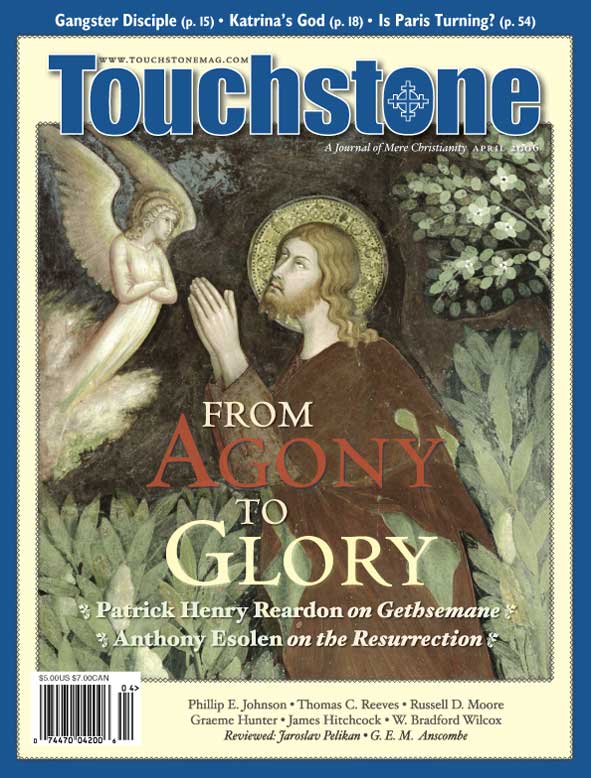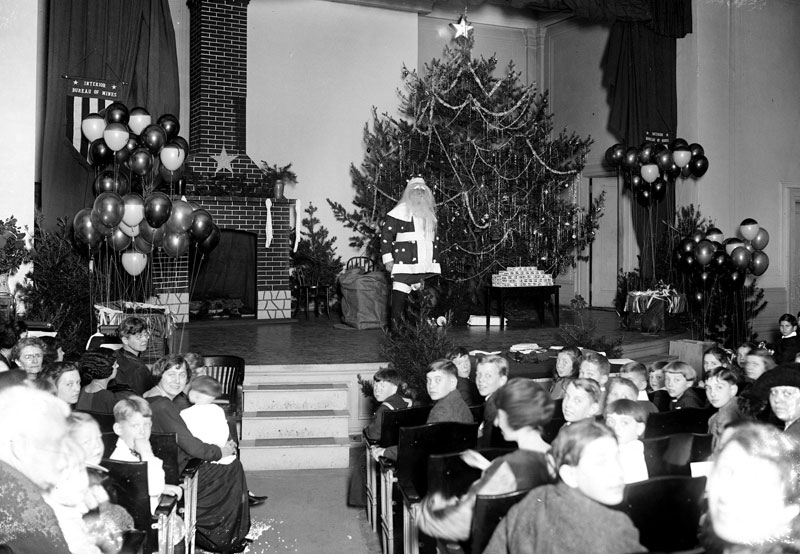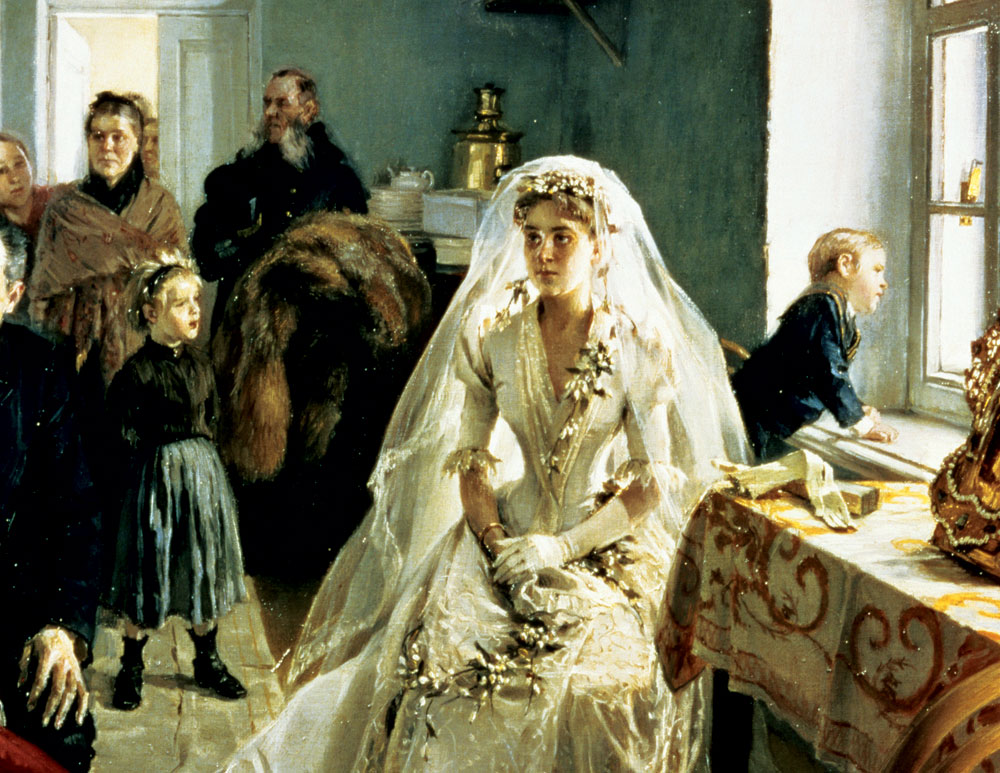Editorial
Our Bad
Pervasive Wickedness & What We Must Say About It by James Hitchcock
The definition of a decadent society might be one in which private vices become public, not merely in the sense of becoming known, but in the sense that the leaders of the society govern in accord with their vices. Sins of the flesh, traditionally thought of as sins of weakness and sources of shame, become sins of pride.
Some sins of the flesh especially. Episcopal Bishop V. Gene Robinson of New Hampshire has precipitated a bitter and possibly fatal division within the Anglican Communion by asserting his right to serve as a father in God even though he left his own wife and children to live with another man. His elevation was presented by himself and many others as an act of justice and an expression of the true gospel.
Paul Shanley, a Boston Catholic priest, for years had a “ministry” to homosexuals in which, in common with many active dissidents against church teaching, he castigated his church for its “rigidity” and “insensitivity.” (He turned out to be a serial molester of young males.)
Since the 1960s all of Western culture has been in crisis, suffering nothing less than a transvaluation of values, doubt concerning the very foundations of the moral beliefs of many centuries, to the point where militant skepticism dominates public discourse and places all traditional beliefs on the defensive. Most of the institutions that embody those beliefs are now weak and divided, to a great degree vulnerable to the very spiritual illnesses they exist in order to heal.
Various Protestant denominations have had more than their share of clerical misconduct at high levels, and it is necessary to go back to the eighteenth century to find misconduct by Catholic clergy, including bishops, on the scale of today. Catholic Bishop Patrick Zeman of Santa Rosa (California) discovered that one of his priests was embezzling parish funds and used that information to obtain sexual favors from the priest, while Catholic Archbishop Rembert Weakland of Milwaukee, a strong supporter of feminism who denigrated the pro-life movement, used diocesan funds to pay blackmail to a male lover. All these men have their loyal supporters.
A scandal-hungry media may aggressively expose the sins of church leaders (the media are noticeably less eager to expose the extent of sexual abuse practiced by public school teachers), but Christians ought to consider the possibility that in our day some of the people who have risen to positions of spiritual authority really are exceptionally wicked, because wickedness, like goodness, is nourished by the society that surrounds it.
Disordered Times
Disordered times allow wicked people to rise, even as their rise further disorders the societies over which they preside. Such societies reward, even if only by default, a contempt for accepted standards of conduct and even unprincipled ruthlessness. In a disordered society, ordinary vices endemic to human nature—ambition, egotism, greed, lust, cowardice—are magnified, so that men who might in stable times be able to fulfill their responsibilities in spite of their vices instead allow those vices to determine the way in which they exercise their offices.
Wicked people come to power by exploiting the moral weaknesses of others in numerous ways, playing one vice against another and not even stopping short of a kind of blackmail. A wicked leader, tacitly or otherwise, encourages others to lower their own moral standards, to give in to whatever their own sinful tendencies happen to be. Otherwise moral people become confused to the point where they cannot even fully acknowledge obvious evil, much less resist it, and “judgmentalism” becomes the only sin.
Sexual behavior is the best index of the moral life of a society, because it is the best way of gauging the degree to which people exercise self-discipline. (Closely related to sexual behavior is the use of money, and it is now almost inevitable that people in responsible positions who abuse sex turn out to be abusing money as well.) Particularly important is the point, long since crossed in the West, at which private vices, always with us, become acts one can claim or even indulge in public. It is this point that wicked leaders wish their societies to cross.
James Hitchcock is Professor emeritus of History at St. Louis University in St. Louis. He and his late wife Helen have four daughters. His most recent book is the two-volume work, The Supreme Court and Religion in American Life (Princeton University Press, 2004). He is a senior editor of Touchstone.
subscription options
Order
Print/Online Subscription

Get six issues (one year) of Touchstone PLUS full online access including pdf downloads for only $39.95. That's only $3.34 per month!
Order
Online Only
Subscription

Get a one-year full-access subscription to the Touchstone online archives for only $19.95. That's only $1.66 per month!
bulk subscriptions
Order Touchstone subscriptions in bulk and save $10 per sub! Each subscription includes 6 issues of Touchstone plus full online access to touchstonemag.com—including archives, videos, and pdf downloads of recent issues for only $29.95 each! Great for churches or study groups.
Transactions will be processed on a secure server.
more from the online archives
calling all readers
Please Donate
"There are magazines worth reading but few worth saving . . . Touchstone is just such a magazine."
—Alice von Hildebrand
"Here we do not concede one square millimeter of territory to falsehood, folly, contemporary sentimentality, or fashion. We speak the truth, and let God be our judge. . . . Touchstone is the one committedly Christian conservative journal."
—Anthony Esolen, Touchstone senior editor










